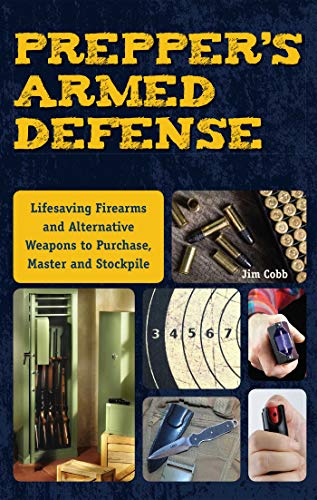When I first began researching survival and preparedness, I can’t tell you how many hours were spent in shock and panic. I read about the “golden hordes” who would soon, very soon, descend upon my suburban home shooting, stealing, and raping, although not in that particular order. According to some survivalists, we’re approaching a tipping point at which our world will begin to run out of oil, and we’ll be thankful to have two rocks to rub together to create heat. Then there were tales of a hidden planet, Planet X, on its way to destroy Earth.
In my early prepping years, there were days I wasn’t so sure I even wanted to survive such scenarios. Anyone who has only known security is in for a shock when their normalcy bias begins to struggle with information about these possible scenarios and many others, far more realistic.
Instant Access to Current Spot Prices & Interactive Charts
Recently I came across these interesting statistics. In a crisis:
10% of people will panic.
80% will do nothing.
Emergency Evacuations:... Best Price: $7.00 Buy New $10.99 (as of 08:20 UTC - Details)
Only 10% will act quickly and appropriately.
As a mom, I realize that my kids can’t afford for me to be part of the 10% that panic or the 80% who do nothing. Parents do not have the luxury of panicking or breaking down in tears when a situation desperately calls for logic and purposeful action.
Picture this situation. You and your children or grandchildren are in the middle of an intense emergency. The young ones are already scared, perhaps even hysterical. They last thing they need is a parent, grandparent, or other loved one who has lost all sense of reason. At that moment, in spite of your own fears, you must be the adult in charge. The options otherwise are not pretty.
So how do you cultivate a mindset capable of handling a major crisis without experiencing it first hand or living in a war zone?
First, decide that you WILL be in that 10% who takes appropriate action when faced with an emergency or drastic change.
 Prepperu2019s Long-Ter...
Best Price: $7.99
Buy New $8.95
(as of 05:50 UTC - Details)
1. Do your thinking and planning now. Make it a habit to ask yourself “What if?” questions. Make situational awareness an everyday habit to be observant of the people and activity around you. If there’s one book I believe every woman, from around age 15 or so, should read, it’s CIA Street Smarts for Women by B.D. Foley. About a third of the way through the book, I realized the book has vital information for my son, too. The Gift of Fear by Gavin de Becker is another must-read. Both books are life-changing and potentially life-saving.
Prepperu2019s Long-Ter...
Best Price: $7.99
Buy New $8.95
(as of 05:50 UTC - Details)
1. Do your thinking and planning now. Make it a habit to ask yourself “What if?” questions. Make situational awareness an everyday habit to be observant of the people and activity around you. If there’s one book I believe every woman, from around age 15 or so, should read, it’s CIA Street Smarts for Women by B.D. Foley. About a third of the way through the book, I realized the book has vital information for my son, too. The Gift of Fear by Gavin de Becker is another must-read. Both books are life-changing and potentially life-saving.
2. Go beyond just looking around and being aware. Begin inventing stories in your head about the people you see around you. Invent a name for them. What do they do for a living, why are they here right now? Believe it or not, this mental exercise will begin to force you to pay even closer attention to details — what are they wearing, who is with them, what clues do you see to enhance this imaginary story? Sounds strange but give it a try.
3. Communicate with your spouse and family about the plans you’re putting into place. First, should anything ever happen to you, they’ll need to know where the stored food is, how to prepare it, how to purify water, how to take care of illnesses and injuries, and so much more. What you learn and the skills you acquire must be shared with your loved ones. Otherwise, in a crisis, it will be you and you alone trying to manage the whole scene. Why do that to yourself when you can easily teach and train those closest to you?
As you’re practicing situational awareness, teach it to your kids and grandkids. It will heighten their awareness to the goings on around them and, should a dangerous situation arise, they will already be alert and ready.
 Prepperu2019s Armed De...
Best Price: $5.00
Buy New $9.36
(as of 06:15 UTC - Details)
Prepperu2019s Armed De...
Best Price: $5.00
Buy New $9.36
(as of 06:15 UTC - Details)
4. For specific crises, such as a house fire or job loss, put your plan in writing and, if possible, actually practice the actions that will keep everyone safe. In the case of a financial crisis, this article is a gold mine of suggestions, but writing out a step-by-step plan is also very helpful. What bills must be paid first? What expenses can be eliminated or drastically cut? If cell phones are on the chopping block, where can you get a super-cheap alternative for emergency calls only? What super-frugal recipes can you begin to learn in advance?
Putting your ideas in writing will help you focus on solutions to a problem and not just the problem itself. Then, if the crisis really does happen, you will have already processed the solutions and, if panic sets in, the written plans will help you move forward and not become frozen with fear.




